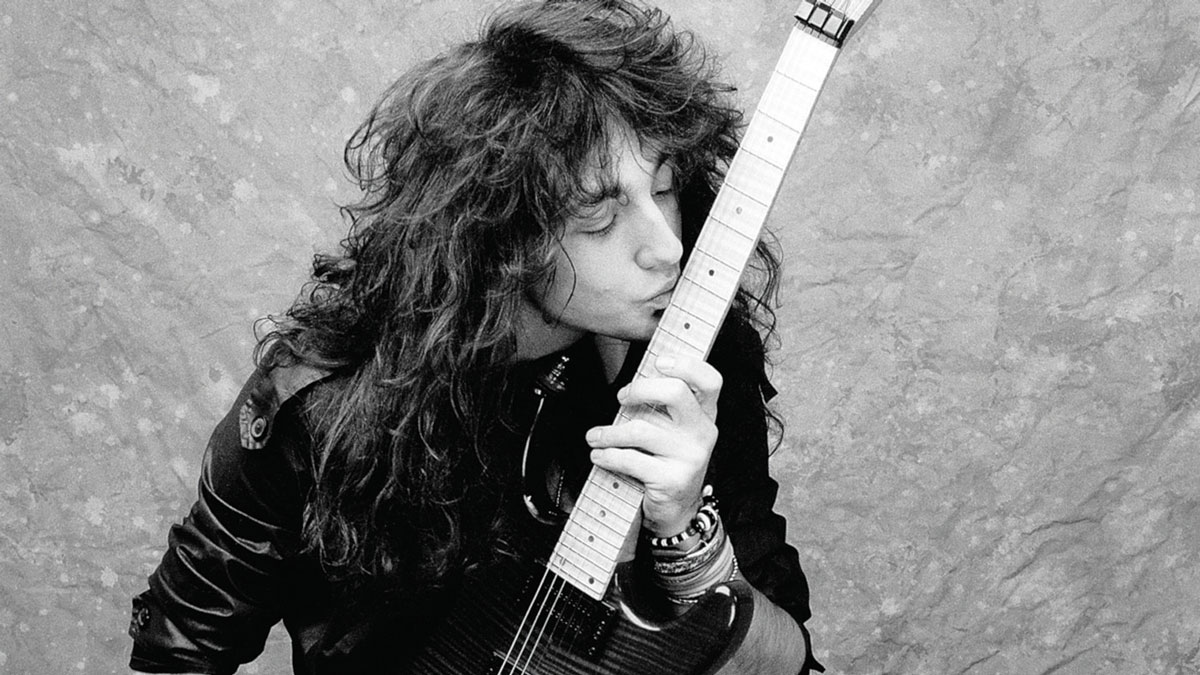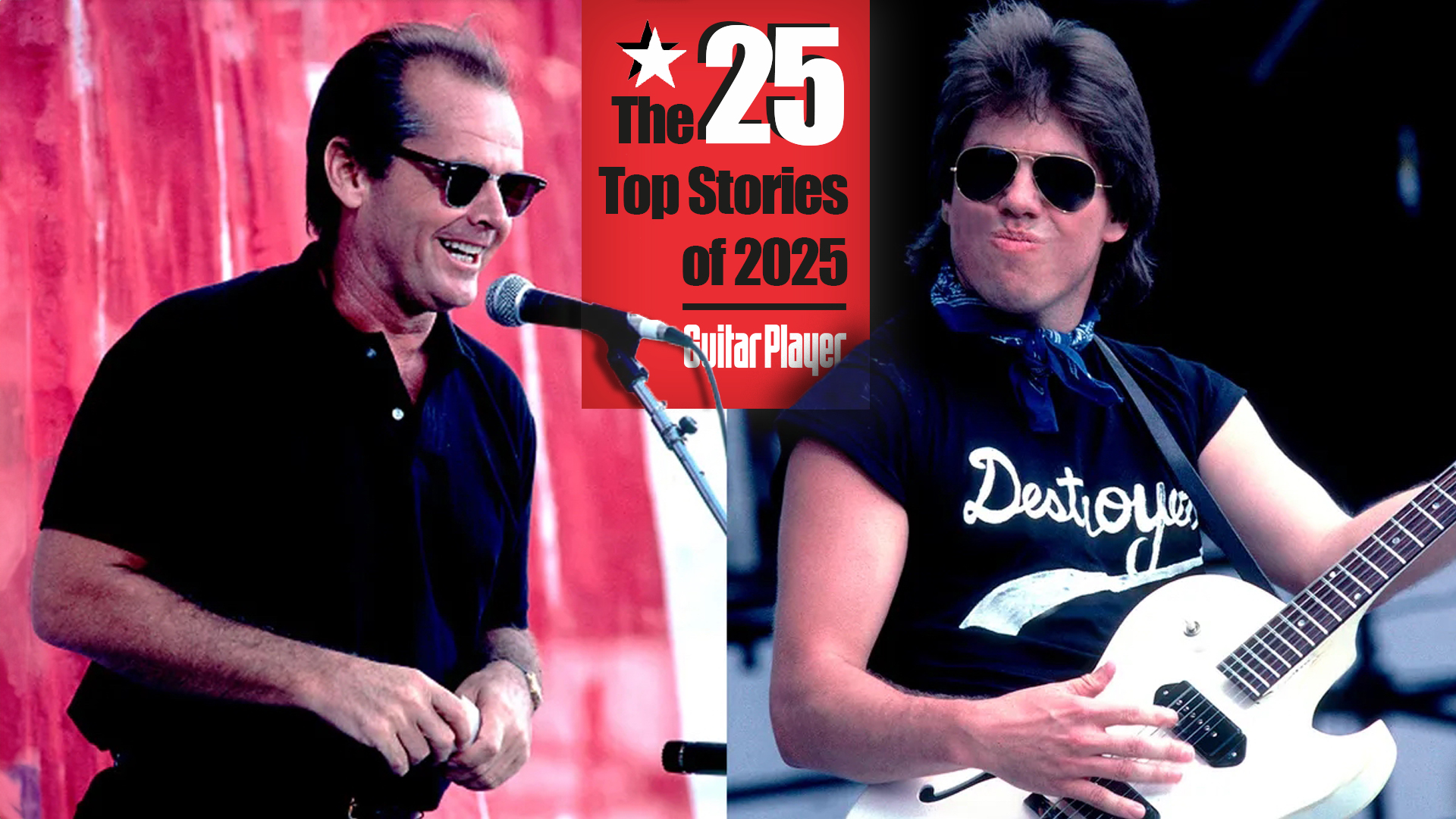“You wouldn’t hear his influence in my earlier recordings... but on the David Lee Roth album and as my hands got weaker, you can hear a little more Eric Clapton in my notes”: How Jason Becker's light-speed style was forced to evolve as his ALS progressed
As the '80s ended and the '90s began, changing tastes in the guitar universe, the tasks of a new gig, and the tragedy that would forever transform Becker's life would force the guitarist to look back at early lessons he learned from a blues master

Though he came to prominence smack in the middle of the shred era (the mid-/late-'80s) electric guitar hero Jason Becker has tended to balk at being labeled a “shredder” himself.
Speed, however, was certainly a prime element of Cacophony – Becker's guitar duo with fellow virtuoso Marty Friedman. Leading up to Cacophony, Becker was, by his own admission, a disciple of the ultimate neo-classical shredder, Yngwie Malmsteen (a Malmsteen “Mini-Me,” Becker once told Guitar Player).
Years before Malmsteen, though, it was the feel and economy of Eric Clapton that made a huge impression on the young Becker. And as the '80s ended and the '90s began, changing tastes in the guitar universe, the tasks of a new gig, and the tragedy that would forever transform Becker's life would force the California native to look back at the early lessons he learned from the blues master.
My uncle Ron taught me the pentatonic scale. We would often jam the blues together at his house across the street. His favorite players were Roy Buchanan, Mark Knopfler, and Clapton. I loved them too. He told me I could play along with pretty much any Clapton tune with this scale
After the dissolution of Cacophony in 1989, Becker was selected by David Lee Roth to replace Steve Vai as the lead guitarist in his band. While he was preparing his parts for Roth's third solo album, A Little Ain't Enough, though, Becker began feeling a nagging pain in his left leg. In 1990, barely out of his teens, Becker was diagnosed with ALS (Lou Gehrig’s Disease), and given less than five years to live.
Though Becker did manage to finish his guitar parts on A Little Ain't Enough, the disease had already begun to seriously affect his ability to play, forcing him to significantly adjust the light-speed style he was initially known for.
“I think his [Clapton's] playing was a great building block for me],” Becker told Guitar Player in 2012. “You definitely wouldn’t hear his influence on my style in my earlier recordings, like Perpetual Burn, unless you dig deep.”
As Becker's ALS rapidly progressed during the recording of A Little Ain't Enough, however, the guitarist increasingly looked to the more economical Clapton for inspiration, telling GP in 2012, “On the Roth album and as my hands got weaker, you can hear a little more Clapton in my notes.”
All the latest guitar news, interviews, lessons, reviews, deals and more, direct to your inbox!
Becker's appreciation for Clapton came partially from his uncle, who was himself a formative influence on the guitarist in his younger days.
“My uncle Ron taught me the pentatonic scale,” Becker once told GP. “We would often jam the blues together at his house across the street. His favorite players were Roy Buchanan, Mark Knopfler, and Clapton. I loved them too. He told me I could play along with pretty much any Clapton tune with this scale. I went home and tried to learn all of his songs and licks.
“Knowing that scale, and seeing Ron play blues, allowed me to figure his stuff out by ear. The notes were the easy part, but figuring out his feel – now that was the hard part. I don’t know if I ever did. I had to find my own feel.”
- To donate to the Jason Becker Special Needs Trust – which helps Becker's family deal with his significant medical expenses – visit the guitarist's website.

Jackson is an Associate Editor at GuitarWorld.com and GuitarPlayer.com. He’s been writing and editing stories about new gear, technique and guitar-driven music both old and new since 2014, and has also written extensively on the same topics for Guitar Player. Elsewhere, his album reviews and essays have appeared in Louder and Unrecorded. Though open to music of all kinds, his greatest love has always been indie, and everything that falls under its massive umbrella. To that end, you can find him on Twitter crowing about whatever great new guitar band you need to drop everything to hear right now.
